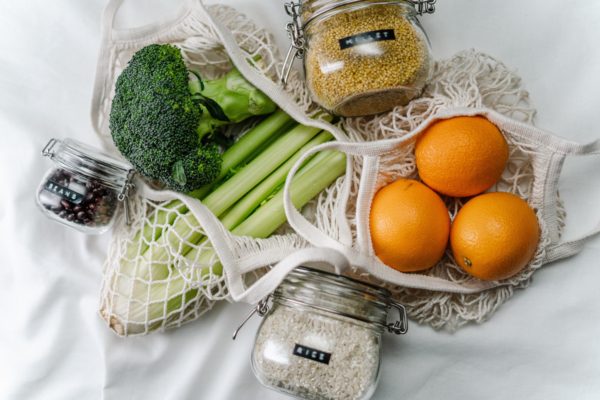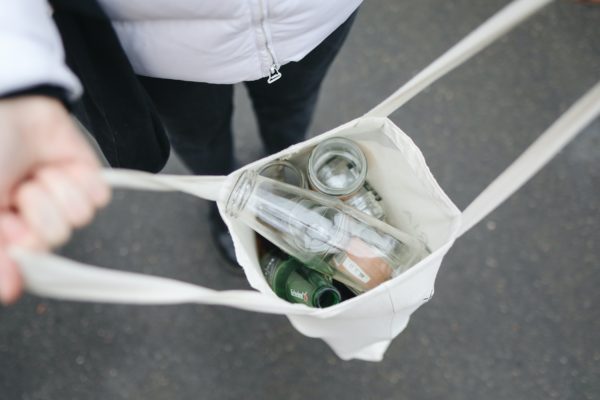Zero waste living is becoming more and more popular, as people are looking for ways to reduce their environmental impact. But what is zero waste living? Why should you do it? How can you start? In this comprehensive guide, we will answer all of your questions about zero waste living! We will discuss what zero waste is, the benefits of the lifestyle, how to get started, tips for reducing your waste, and more!
What is Zero Waste Living?
Zero waste living is the practice of reducing the amount of waste you produce to zero. This can be done in a variety of ways, including recycling, composting, and reducing your consumption. This style of living is becoming more and more popular as people are looking for ways to reduce their environmental impact. The benefits of zero waste living include reduced greenhouse gas emissions, less waste in landfills, and more. Although it is impossible to actually produce zero waste, the goal of zero waste living is to produce as little waste as possible.
Every family should only keep one jar of garbage for each year to live a true zero waste lifestyle, according to National Geographic. Wrappers from bars of soap, gum, or tags from clothing that has been bought can make up one jar of trash each year. This means that everything else either gets recycled, donated, or sold, or it goes in the compost.
Why Should I Do It?
Zero waste living is a great way to reduce your environmental impact. If everyone reduced their waste, it would have a huge impact on the planet. Zero waste living also has many personal benefits, including saving money and reducing clutter.
Waste Has an Effect on the Foods and Waters We Consume
The average American generates over four pounds of trash per day, which is about the same weight as a gallon of milk. It’s no wonder that our landfills are overflowing. But what many people don’t realize is that our waste has a direct effect on the food and water we consume.
Garbage Collection Has an Environmental Impact
The process of collecting and disposing of our waste has a significant environmental impact. Garbage collection is one of the leading causes of greenhouse gas emissions. When we reduce our waste, we also reduce the amount of pollution that is produced from garbage collection.
A Zero-Waste Lifestyle Is More Affordable
Living a zero-waste lifestyle is more affordable than you might think. When you reduce your consumption and waste, you save money on the things you don’t need. You can also save money by composting and recycling. Composting is a great way to reduce your food waste, and recycling can help you reduce the amount of plastic waste you produce.
Is Switching to a Zero Waste Lifestyle Hard?
Making the switch can be daunting, but it doesn’t have to be. There are many simple ways to reduce your waste, and you can start by making small changes. You can also find helpful tips online or in books about zero waste living. It’s important to remember that it is a journey, not a destination. You don’t have to be perfect to make a difference. Just do your best and keep trying!
How Can I Start a Zero Waste Lifestyle?
If you’re ready to start reducing your waste, there are a few things you can do to get started.
Take Inventory
First, take inventory of the things you use and throw away on a regular basis. This will help you identify the areas where you can reduce your waste. An easy way to do this is to keep track of your trash for a week and see what kinds of things you’re throwing away. For example, you might be surprised to see how many plastic bags you use in a week. Or how many cardboard boxes you throw away from online shopping,
Educate Yourself
The best way to reduce your waste is to educate yourself about the zero-waste lifestyle. There are a number of great resources available, including books, websites, and blogs.
Replace Disposable Goods with Reusable Ones.
One of the easiest ways to reduce your waste is to replace disposable goods with reusable ones. For example, you can use reusable shopping bags, water bottles, and coffee cups. You can also use cloth napkins, towels, and rags instead of paper ones.
Shop at a Zero Waste Grocery Store
Another great way to reduce your waste is to shop at a zero-waste grocery store. These stores sell products that can be recycled or composted, including produce, meat, and dairy products. You can also purchase goods with compostable, minimal, or no packaging altogether.
Create a Recycling and Composting System
The final step is to create a recycling and composting system. This will help you manage your waste and keep it from piling up.
The 5 R’s of Waste Management
Reduce
The first step is to reduce your waste. This means buying less, choosing products with less packaging, and avoiding single-use items. This is the biggest and most important step to zero waste living. By reducing your waste, you’ll automatically be recycling and composting more.
Reuse
The second step is to reuse what you can. This includes using reusable shopping bags, water bottles, and coffee cups. It also means repairing broken items instead of throwing them away. By purchasing reusable items, you can save money in the long run. You can also get creative with reusing items such as jars, bags, and boxes by repurposing them for other things. You can use many things in craft projects, like repurposing a milk gallon jug into a water planter, or a bamboo straw into plant label sticks.
Recycle
The third step is to recycle what you can’t reduce or reuse. This includes paper, plastic, glass, and metal. When recycling, you should be careful to only recycle items that are clean and free of food or other contaminants. Make sure you know what can and cannot be recycled in your area. You can check the different types of plastics and what their recycling number means, but it’s better to stick to metal, paper, and glass products when recycling. Also, be sure to properly rinse and clean recyclables before throwing them in the bin.
Rot
The fourth step is to rot your food waste. This can be done by composting your food scraps. Composting means breaking down food waste into a soil amendment. If you are interested in getting into composting, check out our beginner’s guide to composting. Most vegetables and fruits can be composted, as well as coffee grounds, eggshells, and yard waste. You can compost at home or participate in a community composting program. Many companies have biodegradable or compostable products, like food waste bags and compostable utensils.
Refuse
The final step is to refuse what you don’t need. By refusing things like straws and plastic bags, you can reduce your waste even further. This includes saying no to disposable coffee cups, and single-use items.
Tips for Making the Switch to Zero Waste
Start Small
Don’t try to go zero waste overnight! Start small and gradually reduce the amount of waste you produce. You can start by recycling more, composting your food scraps, or bringing your own shopping bags to the store.
Set Goals
Set some zero waste goals for yourself. Decide what you want to achieve and make a plan to reach your goals. Remember to start small and be realistic. Some realistic goals to guide you along your journey are to reduce your waste by 50% in six months or to have zero landfill waste by the end of the year.
Get Organized
One of the best ways to reduce your waste is to be organized. This means having a designated spot for everything, from recyclables to food scraps. This will help you keep track of your waste and make the process easier.
Make Changes Slowly
When making changes to your lifestyle, it’s best to make them slowly. This way, you can adjust to the changes and find what works best for you. You don’t want to overwhelm yourself by making too many changes at once.
Join a Community
There are many online and in-person communities that support zero waste living. These groups can offer advice, support, and motivation to help you along your journey. Some great communities are the zero waste Facebook group, the zero waste subreddit, and the local zero waste meet-up group.
Be Patient
It takes time to make changes to your lifestyle. Be patient with yourself and don’t get discouraged if you slip up. Remember that zero waste living is a journey, not a destination. Just keep working towards your goals and you’ll get there in time.
Zero Waste Living is a lifestyle that aims to reduce the amount of waste we produce. It doesn’t have to be difficult. With a little bit of effort, you can reduce the amount of waste you produce and live a more sustainable lifestyle. If you’re looking for more zero waste inspiration, check out our blog for more tips and tricks.


